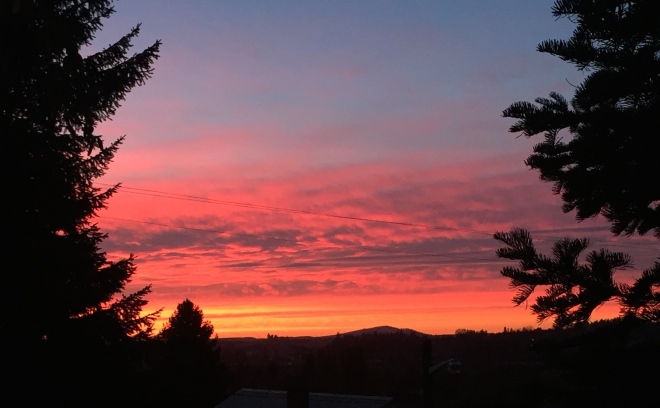“[Faith is] the act of the intellect assenting to a Divine truth owing to the movement of the will, which is itself moved by the grace of God.”
Saint Thomas Aquinas
Faith is one of the topics for this week’s RCIA meeting (Faith/Prayer and Journaling). Once again, I turned to Fr. Robert Barron for insight. I find his easygoing, “just sitting around chatting” videos quite approachable, and at the same time challenging and, for a newbie like me, packed with information.
In the above linked video, he compares the Catholic idea of faith in God (i.e. employing one’s reason and then taking the step of faith) to how people normally interact with others. If we find someone interesting, we may decide to study him, observe him from afar, ask mutual friends about him, do a little research into who he is… but all that will only take us so far. To really get to know him, we must finally actually approach the person, let him speak, and learn from the person himself who he is, his thoughts and feelings, his wishes. Only then can we really know the person, can that person reveal things that we never could have learned from an objective, analytical inquiry.
Then you have to decide if you’re going to believe what the person has revealed to you once you’ve let him speak. Do you trust that person? And that final step is the step of faith.
This analogy is apt because, as Fr. Barron points out, the claim of the Bible is that God is a Person (the supreme Person) who has chosen to speak, to reveal himself to mankind.
We can’t know the heart of God until God decides to speak. At which point I have to say, ‘Okay, do I trust Him or not?’ What’s faith? Faith, for us, is that moment of trust, when I say, ‘Yes. I accept the truth of the God who speaks.’
Fr. Barron
So, this is the “intellect assenting to a Divine truth” in the Aquinas quote above. And this assent is “owing to the movement of the will”, a decision to trust and accept God’s Word, his voice speaking to us.
But what about that last bit, “which is itself moved by the grace of God”? To further Fr. Barron’s analogy a bit, this grace would be God moving first. In the analogy above, the person makes the first move by becoming interested in the other party, and doing some research on him, before finally approaching him and letting him speak. But in our relationship with God, we show interest in learning about God and approaching him due to his grace moving in us, prompting us, kind of nudging us.
Does that negate our free will? I don’t think so, because certainly a person can ignore the prompting and nudging, and I guess eventually (sadly) it’ll stop…
We can choose to respond as if our free will is a seed or a stone. We can allow God’s grace to open us to his call, to nourish us like water and sunlight and fertile soil, or we can harden ourselves so that nothing he says or does can entire in.

But what astonishes me is that God would choose to speak to mankind at all, reveal himself at all. Why? Amazing. That something so huge, beyond comprehension, as the Creator would also choose to be personal, to actually speak to each one of us, to love us. And yet still remain so completely Other, beyond everything we know. So very strange and beautiful…



